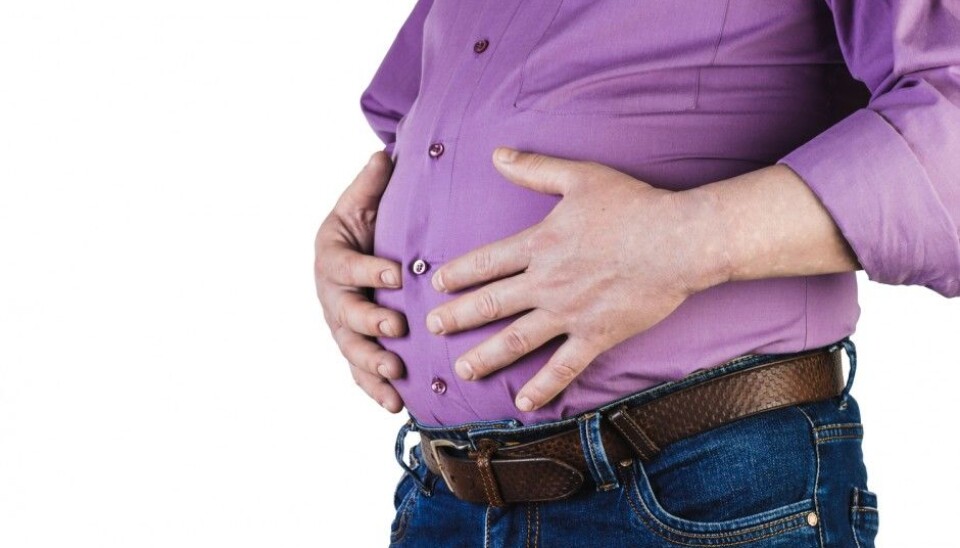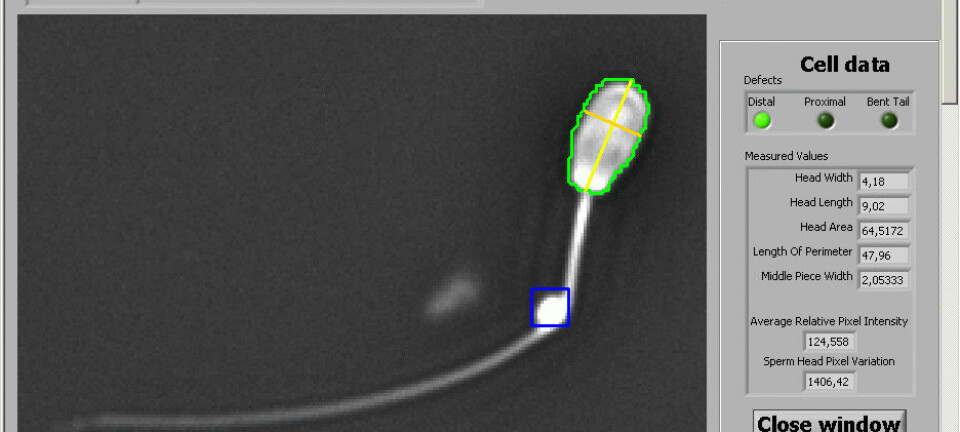This article was produced and financed by Oslo Metropolitan University

Obesity can have a negative effect on sperm quality
There is a link between obesity and poor sperm quality. New research shows that fatty acids such as Omega-3 may be an important explanation.
Considering the fact that more and more people struggle with overweight and obesity, both in Norway and internationally, there is cause for concern, according to the researcher behind the study Jorunn M Andersen, associate professor at Oslo and Akershus University College of Applied Sciences (HiOA).
Andersen defended her PhD thesis entitled ‘Semen quality in relation to obesity, sperm fatty acid composition, and anti-Müllerian hormone’.
Andersen, associate professor at HiOA is part of the research group Male Reproductive Health at the university college.
Today, close to one in five men in Norway are obese and 50 per cent have a BMI (body mass index) over 25 and are categorised as overweight.
"If this obesity trend continues, more and more men may have problems reproducing," says researcher Andersen, who studies sperm quality and male reproductive health.
Big individual differences
Previous research has documented that it is harder for obese women to become pregnant. Andersen and her colleagues’ research shows that obesity is also detrimental to men’s sperm quality and reproductive health. (See fact box)
Although there are major individual differences also within the group with high BMI, the probability of poor sperm quality increases in line with weight.
If the obesity trend continues, more and more people may have trouble having children.
The study is based on results from 166 men with major variation in BMI.
But why does obesity have a negative effect on sperm quality? Andersen has particularly examined the composition of fatty acids in sperm.
Fatty acids may explain poor sperm quality
Omega-3 fatty acids are namely mostly beneficial, including for sperm quality. Her research shows that men with a high BMI have a lower level of omega-3, particularly the beneficial omega-3 fatty acid DHA, in sperm cells than those of normal weight.
We know that major changes take place in the body after weight loss surgery, but not whether this can lead to improved sperm quality.
"There are indications that fatty acids may be part of the explanation for the link between obesity and poor sperm quality," says Andersen.
"The beneficial fatty acids are basically not able to enter the sperm cells and this can contribute to poor sperm quality, particularly in relation to the sperm’s shape and motility. It may be both diet and the circumstances surrounding the obesity that lead to lower levels of DHA fatty acids in sperm."
"Overweight is unfavourable both for sperm quality in itself and for the fatty acid composition in sperm cells, which is an important factor in sperm quality," says Andersen.
Does weight reduction help?
The big question is whether it is possible to improve sperm quality through changes in diet or taking dietary supplements.
"That would be interesting to find out, but more research in the area is needed," says Andersen.
"For women, it has been documented that losing weight makes it easier to become pregnant."
She also wants to find out whether weight loss surgery affects sperm quality.
"We know that major changes take place in the body after weight loss surgery, but not whether this can lead to improved sperm quality. We need to do more research on this," she says.
Scientific links
- Andersen, J. M. et.al(2015). "Body mass Index is associated with impaired semen characteristics and reduced levels of anti-Mullerian hormone across a wide weight range." PLoS One 10(6): e0130210.
- Andersen, J. M et.al (2016). "Anti-Mullerian hormone in seminal plasma and serum: association with sperm count and sperm motility." Hum Reprod 31(8): 1662-1667.
- Andersen, J. M. et.al (2016). "Fatty acid composition of spermatozoa is associated with BMI and with semen quality." Andrology 4(5): 857-865.
































